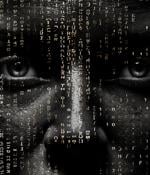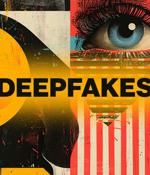Security News

"As AI continues to advance and become more accessible, it is crucial that we prioritize fraud protection solutions powered by AI to protect the integrity of personal and institutional data-AI is the best defense against AI-enabled fraud attacks." 74% of US respondents agree that they would question the outcome of an election held online.

In this Help Net Security video round-up, security experts discuss various aspects of identity verification and security, including generative AI's impact, the state of identity fraud prevention, and the potential impact of identity challenges on the security sector. Complete videos Peter Violaris, Head of Legal, Compliance and Risk, EMEA for OCR Labs, discusses generative AI's impact on identity verification.

Your profile can be used to present content that appears more relevant based on your possible interests, such as by adapting the order in which content is shown to you, so that it is even easier for you to find content that matches your interests. Content presented to you on this service can be based on your content personalisation profiles, which can reflect your activity on this or other services, possible interests and personal aspects.

The Jumio 2024 Online Identity Study reveals significant consumer concerns about the risks posed by generative AI and deepfakes, including the potential for increased cybercrime and identity...

There is growing consensus on how to address the challenge of deepfakes in media and businesses, generated through technologies such as AI. Earlier this year, Google announced that it was joining the Coalition for Content Provenance and Authenticity as a steering committee member - other organisations in the C2PA include OpenAI, Adobe, Microsoft, AWS and the RIAA. With growing concern about AI misinformation and deepfakes, IT professionals will want to pay close attention to the work of this body, and particularly Content Credentials, as the industry formalises standards governing how visual and video data is managed. Content Credentials are a form of digital metadata that creators can attach to their content to ensure proper recognition and promote transparency.

AI's newfound accessibility will cause a surge in prompt hacking attempts and private GPT models used for nefarious purposes, a new report revealed. Experts at the cyber security company Radware forecast the impact that AI will have on the threat landscape in the 2024 Global Threat Analysis Report.

The actual number of people exposed to political and other deepfakes is expected to be much higher given many Americans are not able to decipher what is real versus fake, thanks to the sophistication of AI technologies. "It's not only adversarial governments creating deepfakes this election season, it is now something anyone can do in an afternoon. The tools to create cloned audio and deepfake video are readily available and take only a few hours to master, and it takes just seconds to convince you that it's all real. The ease with which AI can manipulate voices and visuals raises critical questions about the authenticity of content, particularly during a critical election year. In many ways, democracy is on the ballot this year thanks to AI," said Steve Grobman, McAfee's CTO. In a world where AI-generated content is widely available and capable of creating realistic visual and audio content, seeing is no longer believing.

Recent cybercriminal campaigns use voice cloning technology to replicate the speech tone and patterns of celebrities such as Elon Musk, Mr. Beast Tiger Woods, and others and use them for endorsing fake contests, gambling, and investment opportunities. In this Help Net Security video, Bogdan Botezatu, Director of Threat Research and Reporting at Bitdefender, discusses the growing trend of celebrity audio deepfakes.

LastPass revealed this week that threat actors targeted one of its employees in a voice phishing attack, using deepfake audio to impersonate Karim Toubba, the company's Chief Executive Officer. While 25% of people have been on the receiving end of an AI voice impersonation scam or know someone who has, according to a recent global study, the LastPass employee didn't fall for it because the attacker used WhatsApp, which is a very uncommon business channel.

AI deepfakes were not on the risk radar of organisations just a short time ago, but in 2024, they are rising up the ranks. Aon's Global Risk Management Survey, for example, does not mention it, though organisations are concerned about business interruption or damage to their brand and reputation, which could be caused by AI. Huber said the risk of AI deepfakes is still emergent, and it is morphing as change in AI happens at a fast rate.